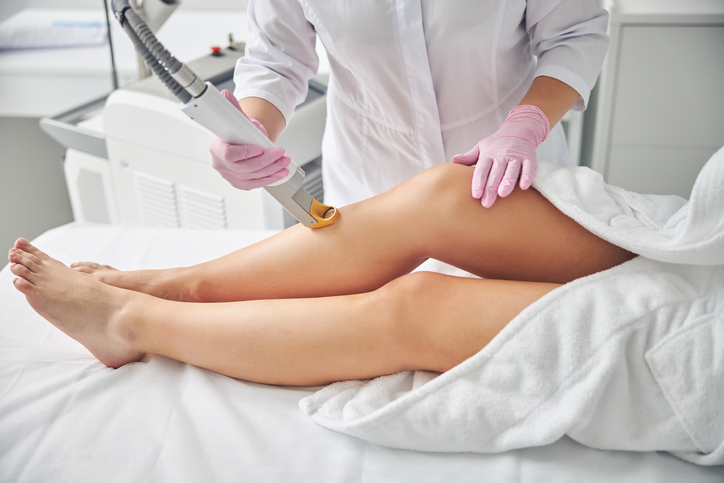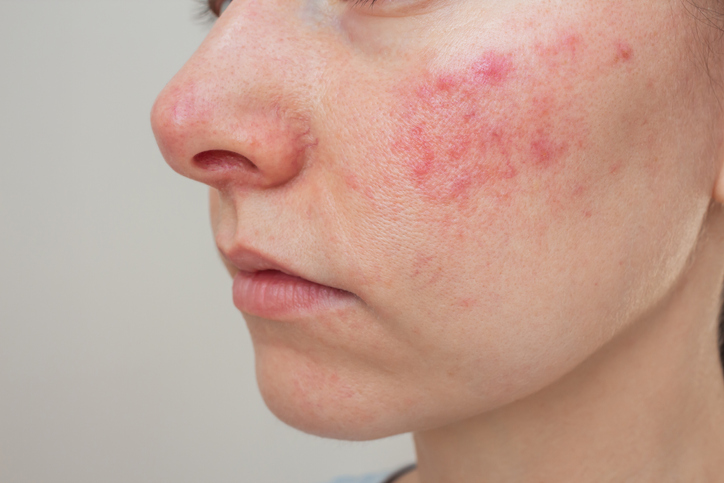
The evolution of intense pulsed light
Intense pulsed light (IPL) has become a staple in beauty salons and dermatology clinics. Learn how it works for hair removal, acne management, and more.
Dr Michael Rich is a specialist dermatologist who has been performing tumescent liposuction for over 30 years. Find out if Liposuction is suitable for you at ENRICH Clinic.
At ENRICH Clinic, we have a wide range of dermatological and cosmetic body treatments tailored to individual body and patient needs.
At ENRICH Clinic, our treatments are performed by our medical team consisting of doctors, nurses, and dermatologists and are tailored to each patient’s skin health needs.
ENRICH Clinic is committed to your skin health and well-being with a range of dermatological & cosmetic treatments tailored to the individual. Our treatments are performed by our medical team consisting of doctors, nurses, and dermatologists.
Skin health is essential for everyone. ENRICH Clinic has a wide range of technologies and dermatological solutions to help you achieve your skin care goals.
If you’re losing your hair, we recommend seeking an experienced hair loss-experienced dermatologist for advice. Each of us has a unique make-up, and it’s important to consider that when we lose our hair.
Hair loss comes under the umbrella term alopecia, with two main subtypes: androgenic alopecia and an autoimmune disease called alopecia areata. They are very different types of hair loss.

While in men there is generally just the one reason for hair loss – male pattern baldness, otherwise known as androgenic alopecia – but in women and five per cent of men, hair loss may not be as clearcut.
We suggest being examined by an experienced hair-loss practitioner and making no assumptions since there’s also hair loss stemming from other health problems such as thyroid conditions.
If we have a clear diagnosis, it makes treatment simpler.

At one stage we were told hereditary baldness was passed down from your mother’s side. If your mum’s father or his brothers were bald, you could expect the same fate. Except, this has been revealed to be untrue.
Baldness genes follow dominance patterns. If your dad and his brothers are bald, guess what? Probably you too. Your mum’s family genes may not get a say.
If you ask around, you’ll likely discover that many women have experienced hair loss at different points of their lives. Hair loss can also mean thinning hair, not just ‘going bald’.
Many women start to lose their hair/experience more significant hair shedding during or after pregnancy. This hair loss can come as quite a shock but is quite common. The loss may be patchy and can cause distress. Hormones may be to blame.
In older age, women can go partially or fully bald just like men can, which is also called androgenic alopecia, and in women, female pattern baldness. Older women have a hormonal profile very similar to men, and the effects of androgens can be seen on the scalp.
Women also undergo cancer treatments and lose their hair in equal numbers to men.

Hearing bad news or having an emotionally distressing time – a shock – can result in the loss of one’s hair, but slowly over a few months rather than all in one go. The hair loss is likely to be partial or patchy rather than extensive, and once normality is restored, and the emergency is over, hair should naturally grow back.
This type of hair loss is known as telogen effluvium. Telogen effluvium might occur after a period of extreme stress, where the hair follicles go into a resting, inactive state. This resting state results in the current hair falling out but not being replaced.
Anabolic steroids can contribute to and speed up hair loss as they increase the specific androgens that cause baldness. The loss can be reversed in some people when the steroids stop, but the change may be permanent.
We believe that a thorough examination of every person experiencing hair loss is in order and a full health history taken to rule out any underlying health conditions.
Losing your hair can be extremely distressing, especially if the loss occurs over a short period. Because we are doctors and dermatologists, we treat you, the person, not just your hair loss. Having a clear understanding of why you are losing your hair means we can target your treatments for best results.
PRP is being used in many areas of medicine to rejuvenate cells and promote healing. Stimulation can easily apply to hair follicles, especially those damaged by the impacts of androgens. PRP stimulates follicles with growth factors, which has been scientifically proven to stimulate hair growth.
The levels of hair growth vary between people, but PRP has proven itself as a weapon of desire in the fight against hair loss.
PRP has no side-effects and a substantial success rate. You might not get all your hair back, but you’ll very likely get some. It’s difficult to determine how many treatments you’ll need over time, but we can see the great results over the course of a year with studies.
Don’t believe us? Read one scientific study yourself.
There are medications, androgen-blocking drugs, that can be applied in a topical cream or as an oral formulation to block androgens from negatively affecting hair follicles.
These medications aren’t for everyone and can provoke some unpleasant side-effects, but many men find them useful to a greater or lesser degree.
Come and discuss your options in a consultation at our Armadale clinic. We are expert dermatologists, and you can rest assured that you are in the best hands.
We have state-of-the-art equipment and highly experienced hair-loss expert doctors. We’ll guide you through a clear diagnosis and on to the most appropriate, effective solutions.
We are hair-loss experts.
Contact us for a consultation
ENRICH Clinic
*With all surgeries or procedures, there are risks. Consult your physician (GP) before undertaking any surgical or cosmetic procedure. Please read the consent forms carefully and be informed about every aspect of your treatment. Surgeries such as liposuction have a mandatory seven-day cooling-off period to give patients adequate time to be sure of their surgery choice. Results may also vary from person to person due to many factors, including the individual’s genetics, diet and exercise. Before and after photos are only relevant to the patient in the photo and do not necessarily reflect the results other patients may experience. Ask questions. Our team of dermatologists, doctors and nurses are here to help you with any of your queries. This page is not advice and is intended to be informational only. We endeavour to keep all our information up to date; however, this site is intended as a guide and not a definitive information portal or in any way constitutes medical advice.
"*" indicates required fields
Combining Dr Rich’s dermatological skill with his knowledge of restorative skin regimes and treatments, the ENRICH range is formulated to help maintain and complement your skin. Our signature Vitamin C Day & Night creams are now joined by a Vit A, B,&C Serum and a B5 Hyaluronic Gel, both with hydration properties and much, much more.

Intense pulsed light (IPL) has become a staple in beauty salons and dermatology clinics. Learn how it works for hair removal, acne management, and more.

Worried you have eczema, dermatitis, or psoriasis? We talk symptoms, causes, triggers, and treatments for these common causes of itchy skin.

Research has shown that snoring can be reduced by up to 60% after two or three treatments with ENRICH Clinic’s high-tech target lasers designed to tighten the soft palate and stop snoring.

Suddenly dealing with itchy skin? We’ll talk about the common causes and how to find relief.
Subscribe to the ENRICH newsletter and receive latest news & updates from our team.
Enrich Clinic acknowledges the Traditional Lands of the Wurundjeri Woi Wurrung and Bunurong peoples of the East Kulin Nations on which we work and trade. We pay respect to their Elders past, present and emerging. We extend our acknowledgement and respect to the LGBTQIA+ community who we welcome and support. Read our full Acknowledgement Statement here
